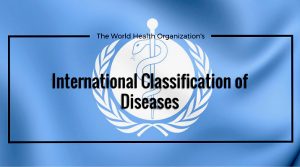Because of the changes that health informatics is bringing to healthcare operations and patient care, a new breed of trained health professionals will be required to implement and support health information technology in hospitals and clinical settings as well as in research and educational facilities.
Another factor driving the tremendous employment growth in health informatics careers is the considerable attention it has received from the federal government as part of the reorganization of healthcare delivery in the United States under the Affordable Care Act.
Because of the sudden expansion and rapid growth in health informatics careers, the U.S. Bureau of Labor Statistics (BLS) has not yet published precise employment and salary data. However, the BLS projects a 17% rate of growth in employment opportunities for medical and health services managers in general and a 15% rate of growth for general medical records and health information technicians.
While these figures from the nation’s foremost source of employment and salary data don’t directly represent health informatics careers, they show an overall expected increase in career opportunities in the health information technology sector. However, it’s best to explore local resources and job markets to determine specific opportunities available for health informatics professionals in your area.
Health Informatics Careers Offer a Broad Range of Options
One of the challenges organizations face with implementing health information technology is the need for a skilled workforce that understands healthcare, information technology and the people and organizational challenges involved. An HI career can be a perfect fit for nurses, practicing clinicians, medical students, those proficient in IT and other healthcare providers. Those interested in, or currently working in health sciences or information technology could also make a good candidate for this field.
The field of health informatics is so broad and wide-reaching that those with the right training and credentials could hold many different titles. For example, a master’s degree or graduate certificate in health informatics can lead to a new career in positions as diverse as a health informatics consultant or director, nursing informatics specialist, chief medical information officer, health information system application designer or compliance officer.
Preparing for a Health Informatics Career
There are only a handful of colleges and universities offering graduate programs in health informatics or health information technology. However, the University of South Florida Health’s Morsani College of Medicine stands apart as the only medical school in the country that offers a Master of Science in Health Informatics degree and a Graduate Certificate in Health Informatics 100% online.
In addition to the prestige of being affiliated with a major medical school, students benefit from being trained by actual clinicians who have experience working in hospitals, emergency rooms, clinics and other healthcare facilities. This is perfect for blending the program’s combination of informatics and medical knowledge. In this sector, you can expect to work with people who have extensive knowledge of medical coding, medical billing and the operation of a medical database.
Starting out as a health informatics specialist, you can expect to earn about $43,600 on average and a maximum of $106,000 over the course of your career. Professionals with an associate’s degree will typically earn less than peers with master’s degrees.
Is health informatics a good career choice for you? Health informatics is a growing field offering amazing opportunities for those with the education and skills that healthcare organizations seek. It also represents an exciting chance to be at the forefront of healthcare innovation and play a role in developing new health solutions and advancing medical care for years to come.
*National long-term
projections may not reflect local and/or short-term economic or job conditions,
and do not guarantee actual job growth. Information provided is not intended to
represent a complete list of hiring companies or job titles, and program options
do not guarantee career or salary outcomes. Students should conduct independent
research for specific employment information.




